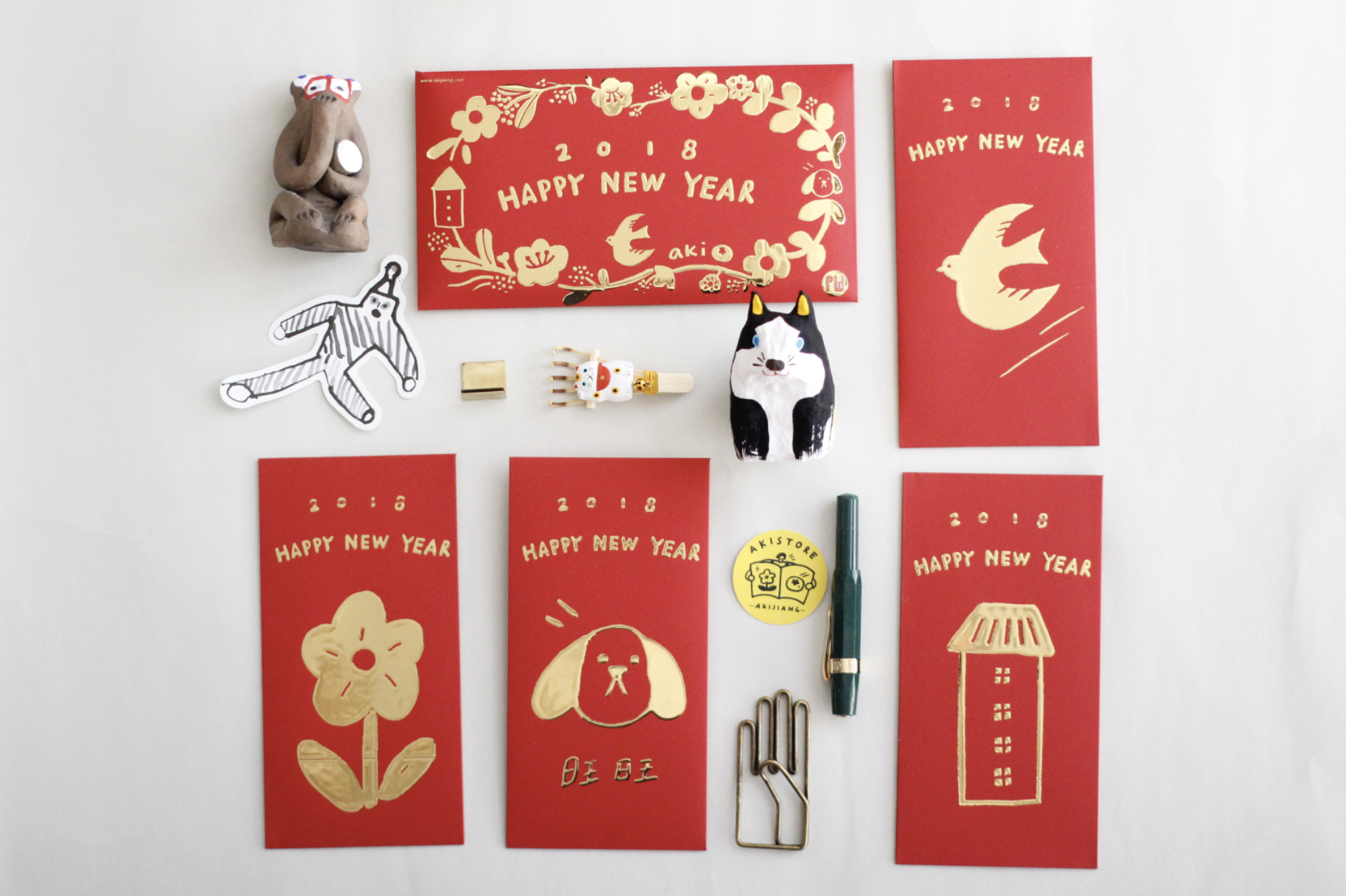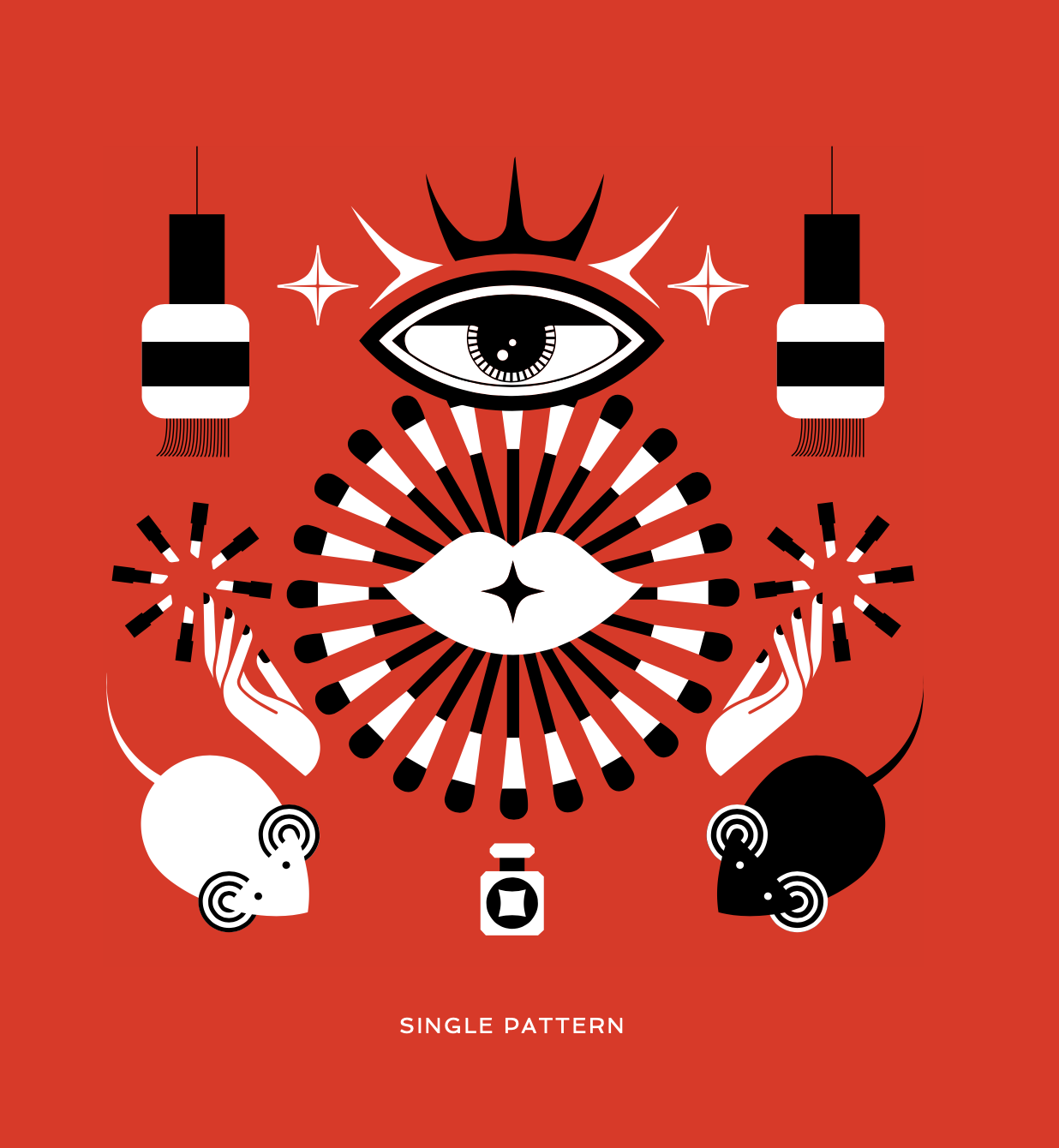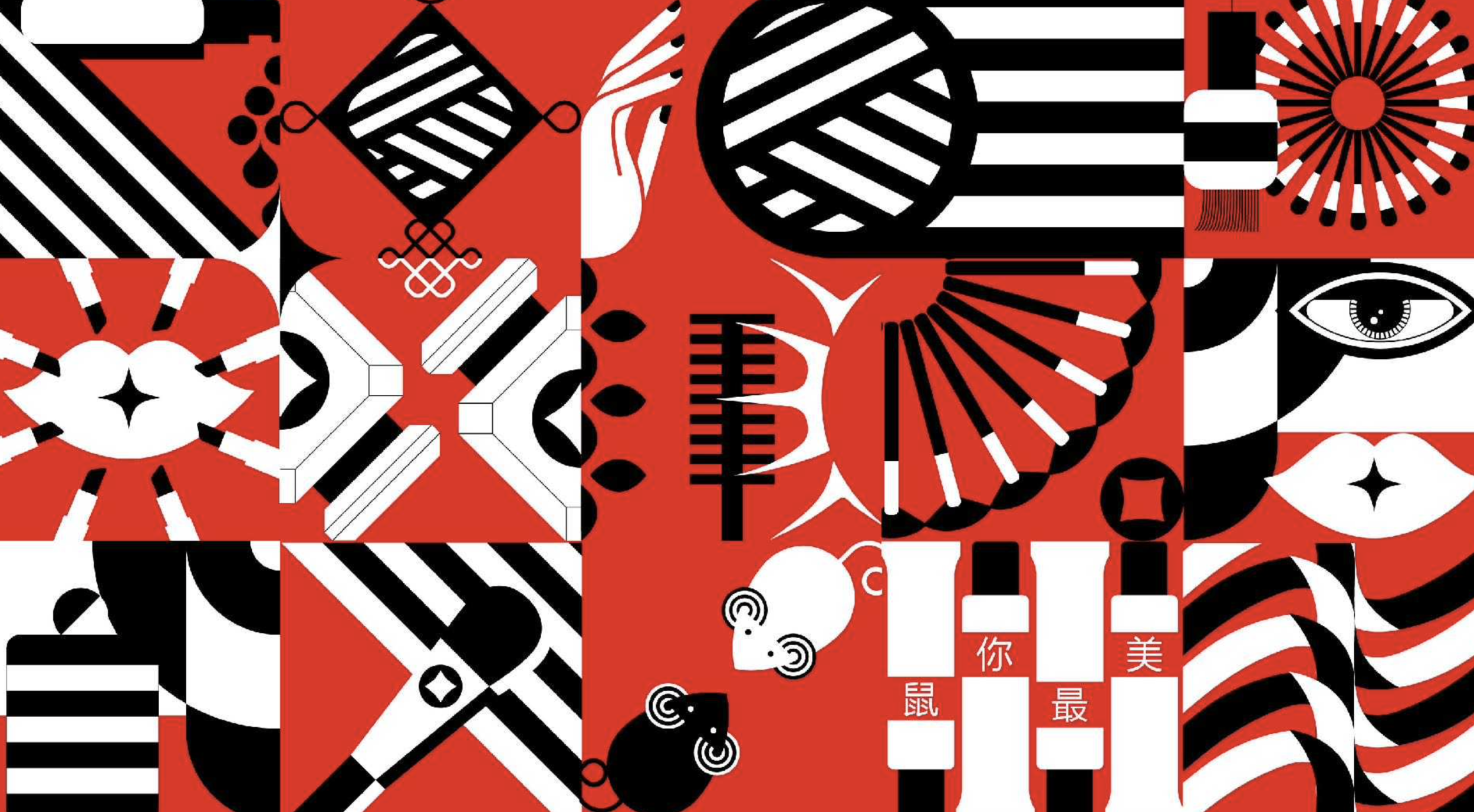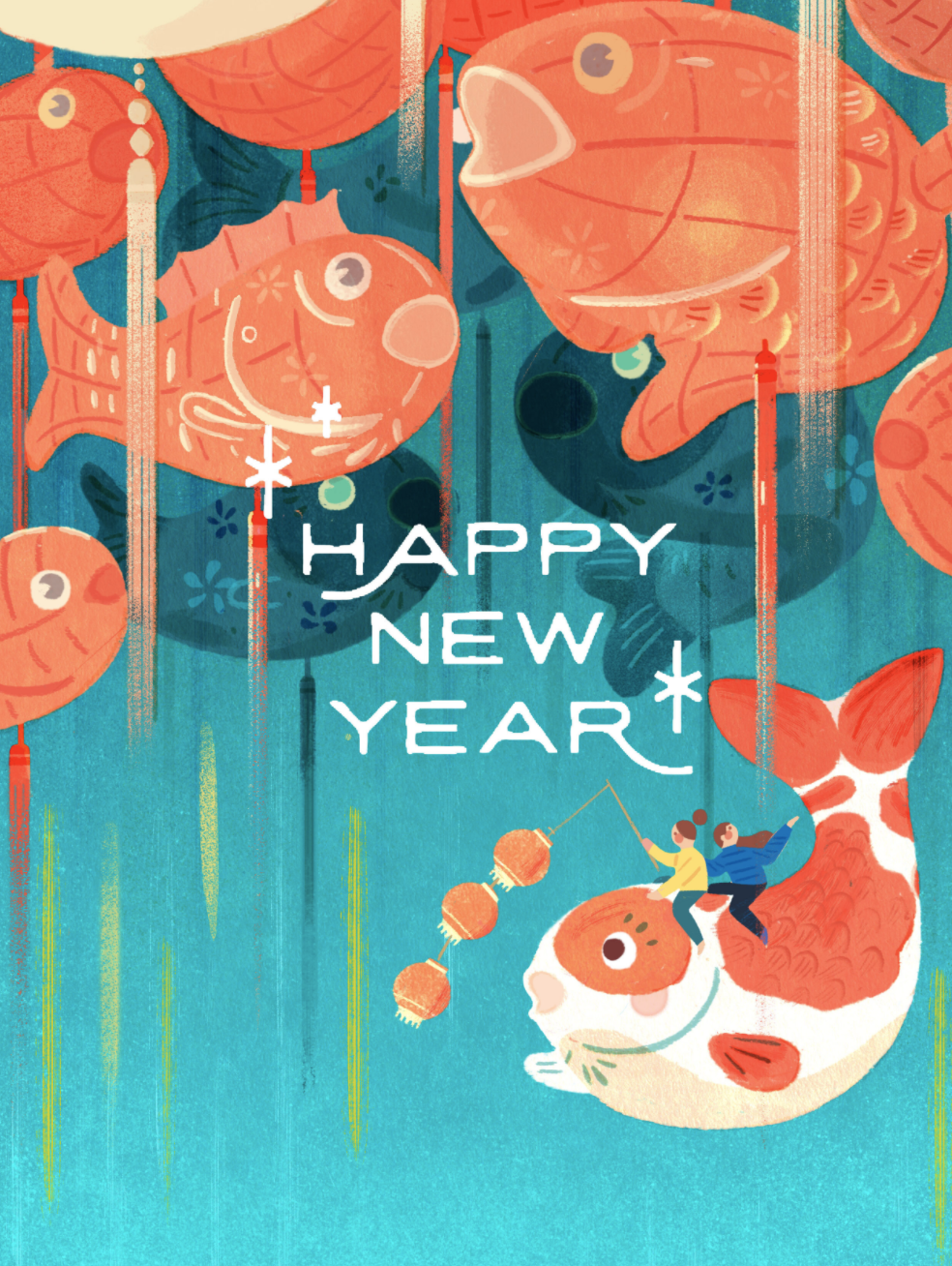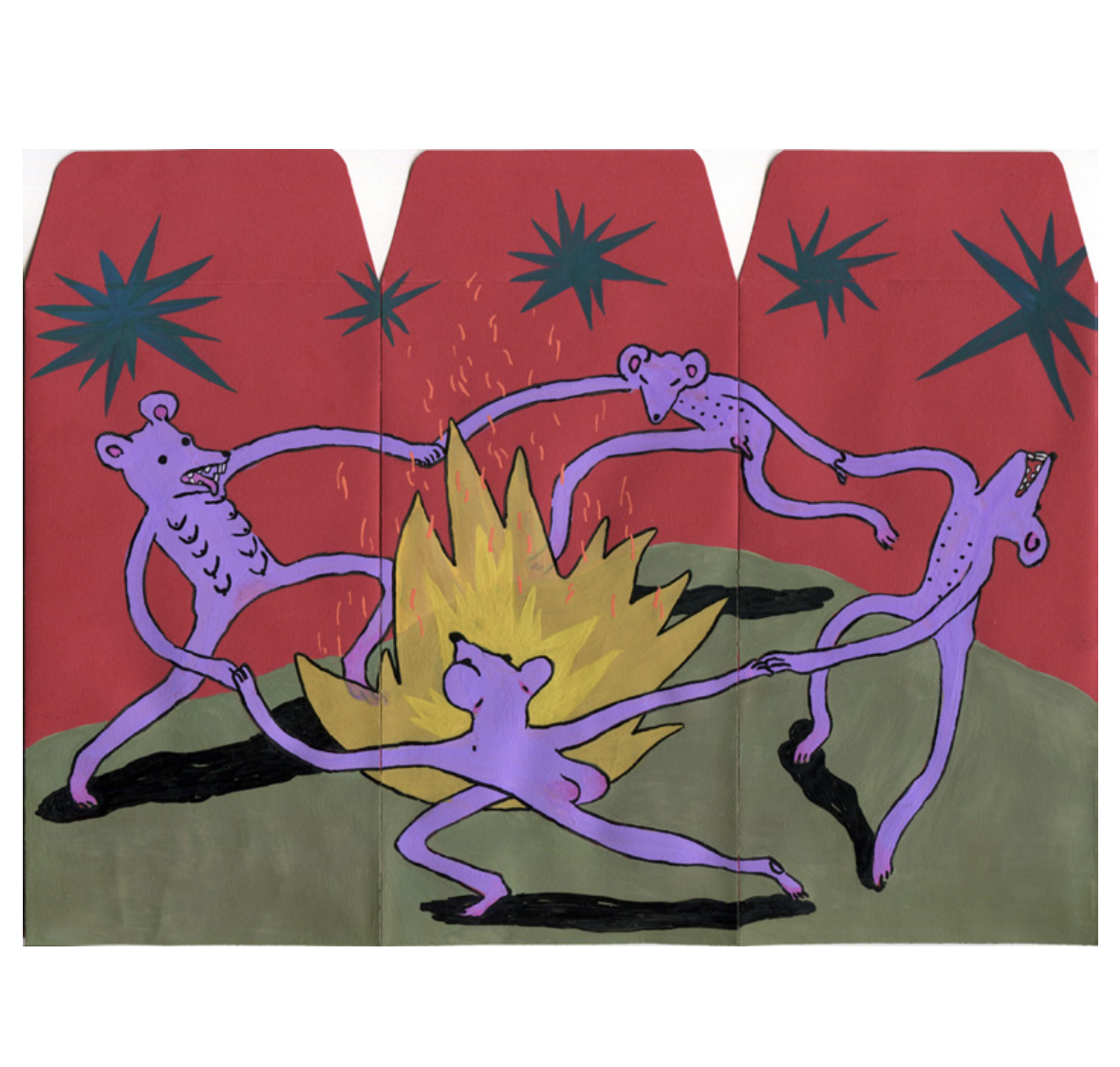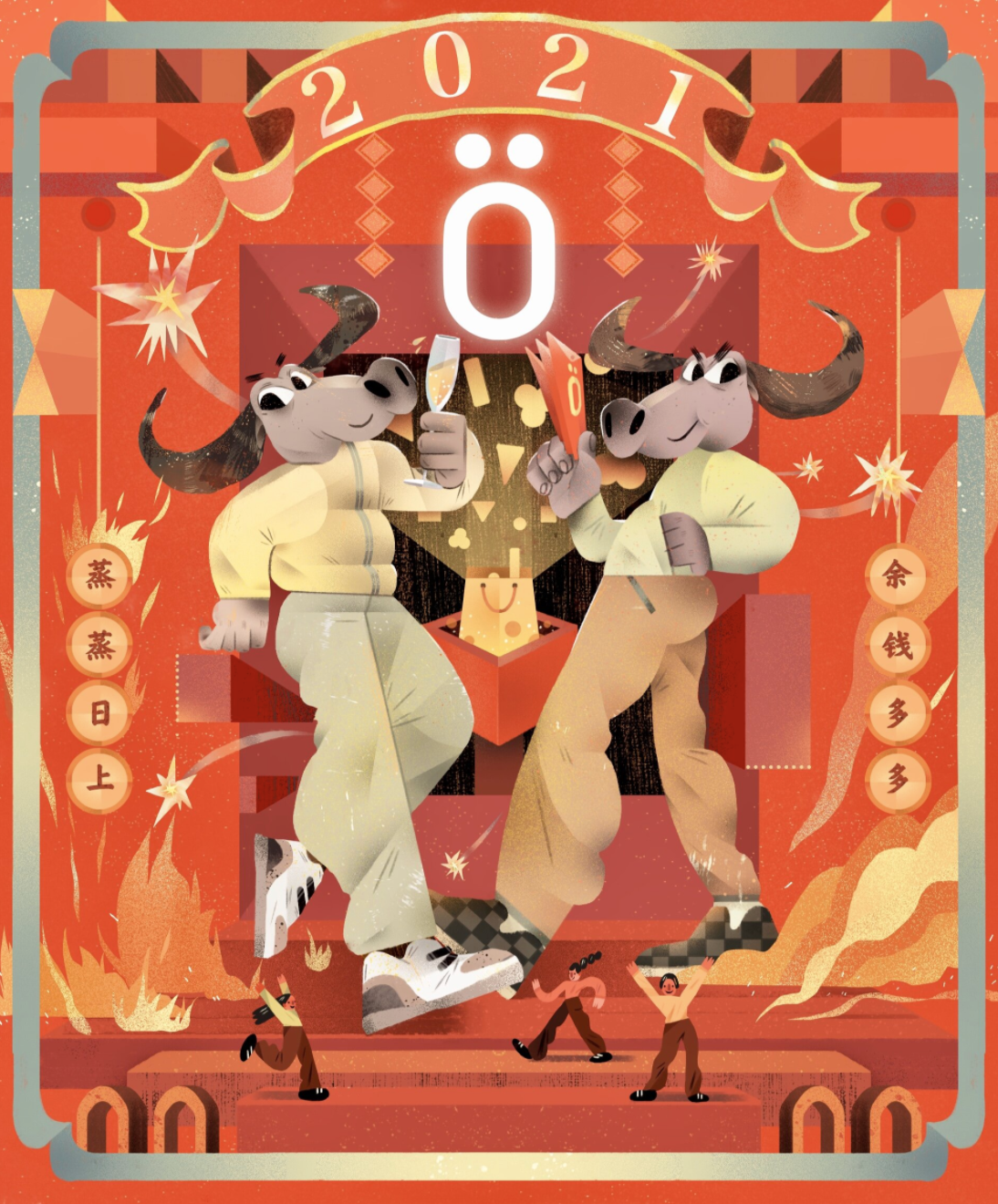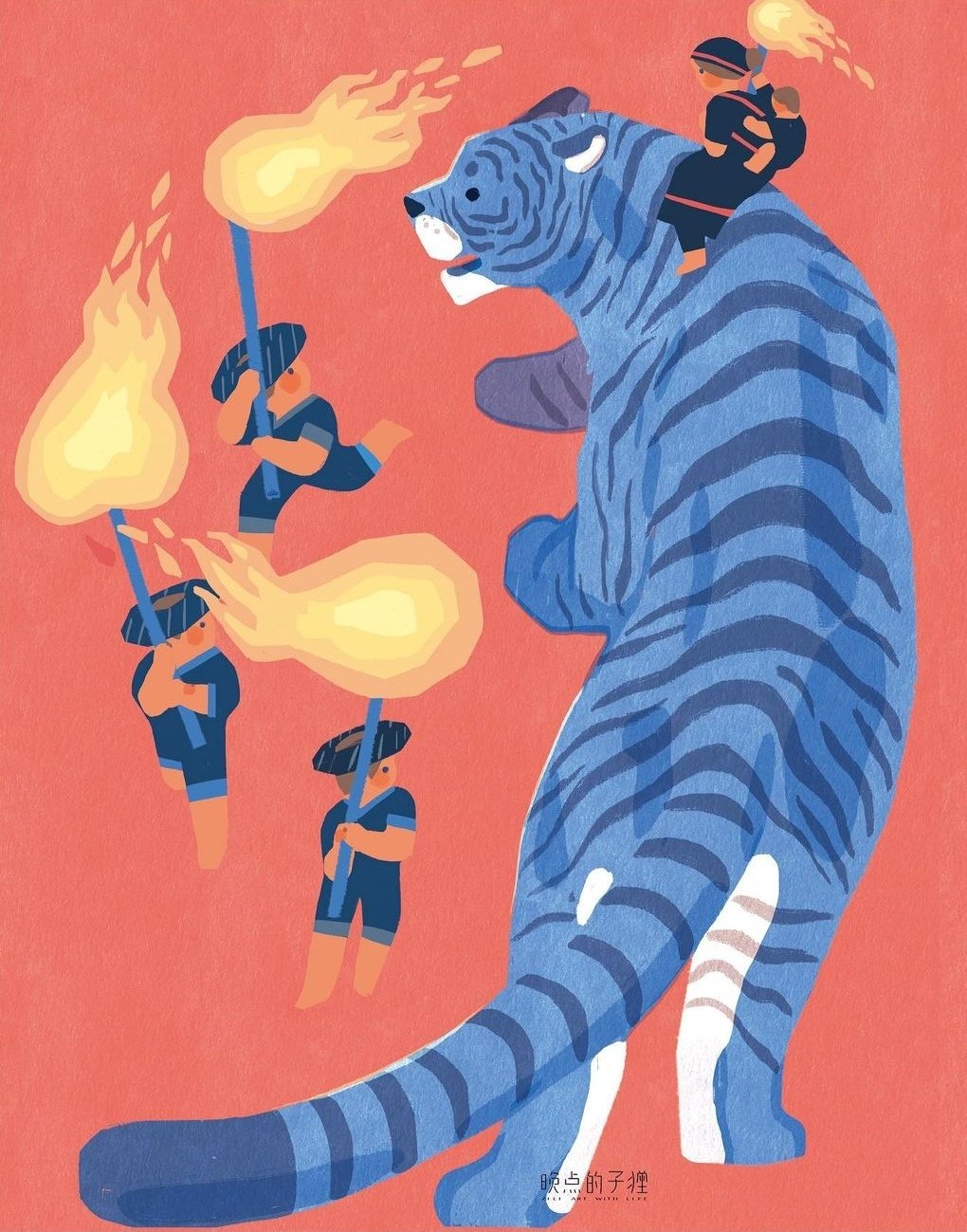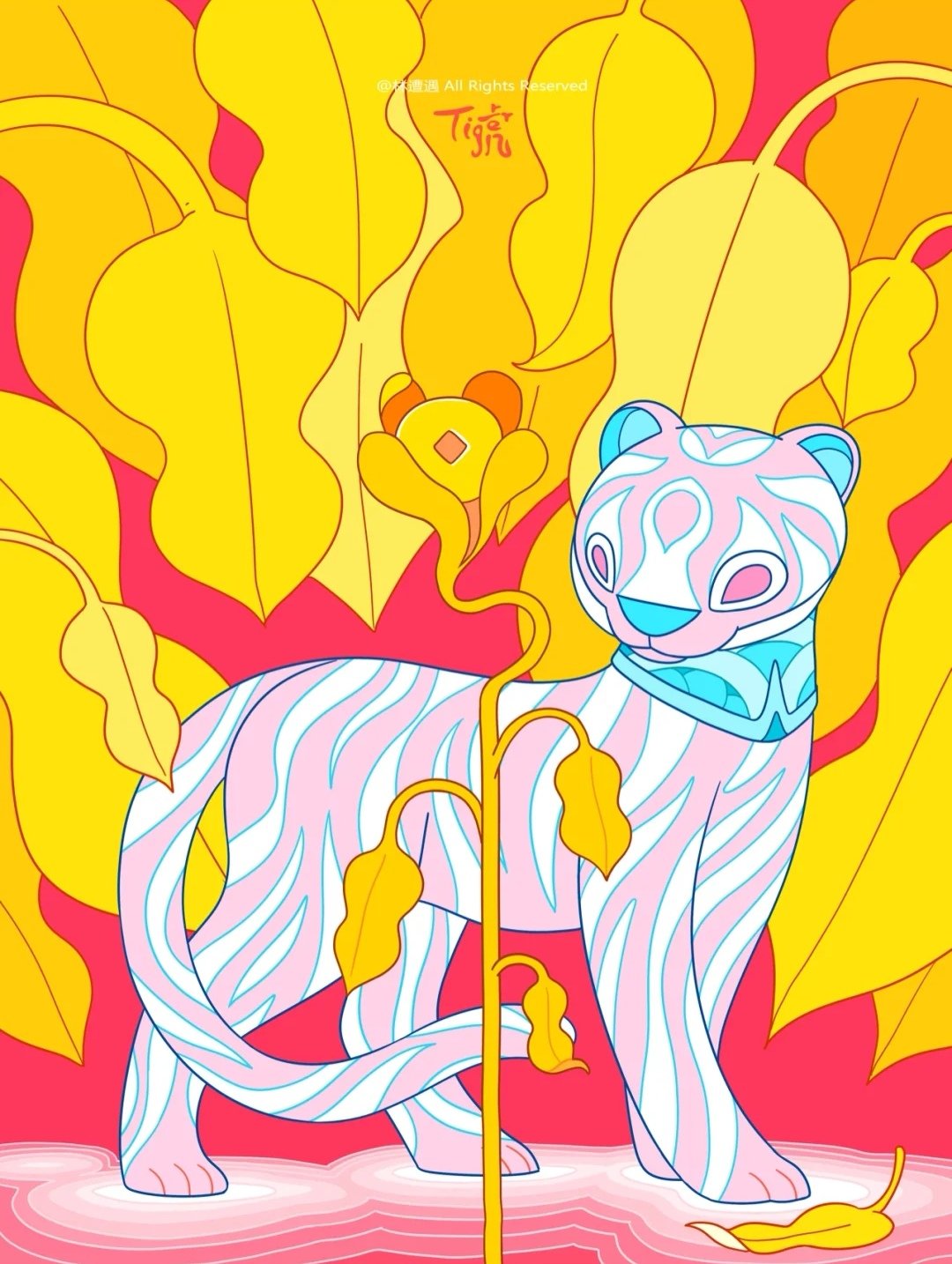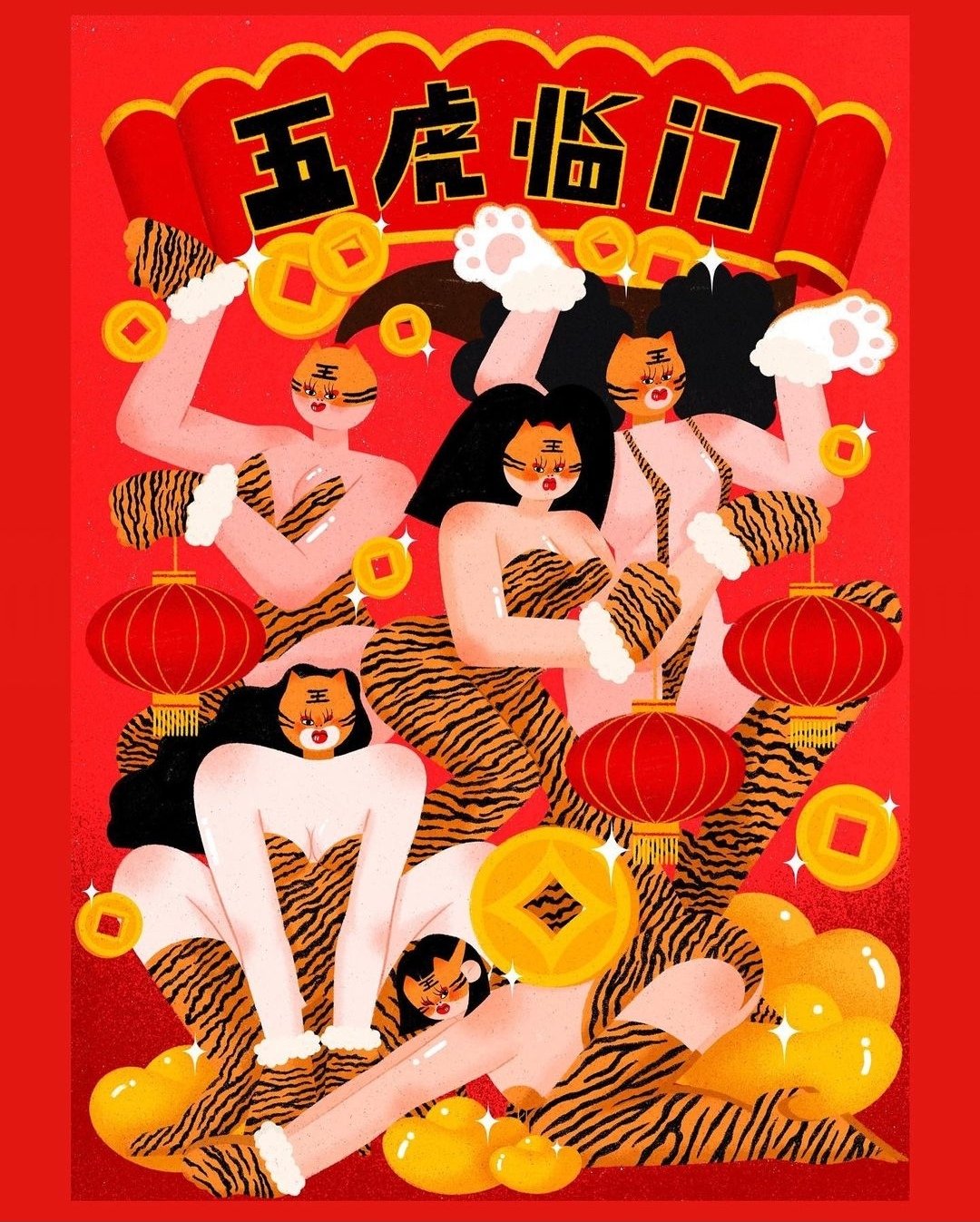Happy Chinese New Year
To celebrate the upcoming Chinese New Year, we selected the following artworks to illustrate Six New Year traditions with you.
Caver Zhang
CNY Folk Art
1. The start of Chinese New Year, also known as the "day of the chicken," officially commences at midnight. It is customary to light firecrackers and create as much noise as possible to scare away the evil monster known as "nian." This tradition is believed to ward off bad luck and bring good fortune for the coming year. The loud noises and bright lights of the firecrackers are thought to frighten away the mythical creature and ensure a prosperous start to the new year. This vibrant and energetic celebration is a significant part of Chinese New Year festivities, symbolizing the banishment of negativity and the ushering in of a joyful and auspicious year ahead.
AKI x Paper Wonder
“Red&Gold” Red Packet
2. Meanwhile, the younger members of the family take part in the tradition of handing out red envelopes, also known as "red packets," containing cash as a form of blessing for the upcoming year. This tradition involves the senior members of the family giving red envelopes to their junior members, such as children, grandchildren, or nieces and nephews. The red envelopes are believed to bring good luck, prosperity, and blessings for the new year. The red color is considered auspicious in Chinese culture, symbolizing good fortune and warding off evil spirits. The act of giving and receiving red envelopes is not only a gesture of generosity but also a way to express well wishes for the younger generation in the family. It is a cherished tradition that adds joy and excitement to the Chinese New Year celebrations, especially for the young ones who eagerly anticipate the red envelopes and the blessings they contain.
Jazzy Yuan
Sunrise Duty-Free CNY Campaign
3. On the second day of Chinese New Year, it is customary for people to visit their parents, relatives, and close friends. Just like during Christmas, gifts are exchanged as a way to express well wishes and celebrate the festive occasion. The act of giving gifts during Chinese New Year is a gesture of love, respect, and appreciation towards family members and friends.
Gifts exchanged during Chinese New Year can vary, but commonly include items such as food, sweets, fruits, tea, and other auspicious items that symbolize good luck and prosperity. The gifts are carefully chosen to convey positive wishes for the new year, such as wealth, health, happiness, and success. It is also common to give gifts that are personalized and meaningful, showing thoughtfulness and care towards the recipients.
The exchange of gifts during Chinese New Year is not only a way to celebrate the occasion but also a way to strengthen bonds with family and friends. It is a time for people to come together, share blessings and good wishes, and express appreciation and gratitude. The act of giving and receiving gifts is a cherished tradition that adds warmth and joy to the festivities of Chinese New Year.
Diamonster
SWATCH 2020 New Year Customized Illustration
4. On the third day of Chinese New Year, there is a popular saying that goes, "A fat pig at the door", which symbolizes the arrival of good luck and happiness. It is believed that on this day, the gods and goddesses of Chinese mythology may also be traveling, so it is customary for people to stay at home to pray and welcome them.
According to Chinese folklore, some gods and goddesses are believed to travel during the Chinese New Year period, and their arrival at one's home is considered auspicious. People may offer incense, fruits, and other offerings to these deities, and pray for blessings, protection, and good fortune in the coming year. It is believed that welcoming these gods and goddesses into the home can bring prosperity and luck to the family.
On the other hand, there are also some gods and goddesses who are believed to be harmful or bring bad luck during this time. To avoid attracting their attention, people may refrain from going out, making loud noises, or engaging in activities that may offend these deities. It is a time when people are cautious and take precautions to ensure that only positive energies are invited into their homes during the auspicious period of Chinese New Year.
The belief in the presence of gods and goddesses during Chinese New Year reflects the deep-rooted spiritual and cultural traditions of the Chinese people. It is a time when people pay homage to their beliefs, express reverence for their gods and goddesses, and seek blessings and protection for the coming year.
Momo Shou
MINI Cooper 2019 CNY
Momo Shou
Sephora 2020 CNY
5. The fourth day of Chinese New Year is associated with the old saying "three rams bring bliss". According to Chinese folklore, this day is believed to be auspicious for making a good beginning, as it is believed that a happy end will follow.
The saying "three rams bring bliss" is often interpreted as a symbol of good luck and prosperity. In Chinese culture, the ram is considered a symbol of auspiciousness and good fortune. It is believed that on the fourth day of Chinese New Year, if one makes a good start and sets positive intentions for the year ahead, it will lead to a happy ending or a successful outcome.
This saying reflects the Chinese belief in the power of positive actions and intentions to influence one's fate and fortune. It emphasizes the importance of starting the new year on a positive note and setting the right tone for the rest of the year. Many people take this belief to heart and make special efforts to begin the year with positive actions, such as acts of kindness, generosity, and goodwill towards others.
The idea of "making a good beginning for a happy end" is not only limited to the fourth day of Chinese New Year, but also extends to the overall mindset and attitude towards the new year. It reflects the Chinese cultural value of starting things off on the right foot and maintaining a positive outlook for the future. By making a good beginning, it is believed that one can attract positive energy, blessings, and good fortune, leading to a happy and prosperous year ahead.
CNY illustration events by Zili,Jo Zixuan and Zhongniao
6. The fifth day of Chinese New Year is often referred to as the "day of cow", and it is considered to be the birthday of the God of Fortune. It is believed that on this day, the God of Fortune bestows blessings of wealth and prosperity for the coming year. As a result, many people celebrate this day with a large banquet, offering food and drinks to the God of Fortune in hopes of receiving his favor.
In addition, the fifth day of Chinese New Year is also known as the Festival of Po Wu, which translates to "breaking five". According to tradition, it is believed that on this day, many New Year taboos and restrictions can be broken. This includes lifting certain restrictions on diet, behavior, and activities that were observed during the previous days of the New Year period.
The Festival of Po Wu is seen as a time when people can let loose and enjoy themselves without the constraints of New Year taboos. It is a day to break free from restrictions and celebrate with joy and festivity. Many people take this opportunity to participate in various social and recreational activities, such as feasting, dancing, and entertainment.
The significance of the "day of cow" and the Festival of Po Wu varies among different regions and communities within China and other countries that celebrate Chinese New Year. However, in general, it is a day of celebration, merriment, and the lifting of taboos, allowing people to enjoy themselves and welcome the new year with joy and positivity.
Yang Haha
Happy Year of the Tiger
CNY illustration events by Zili, Lin Zaoyu and Vivienne Shao



